How To Start Grape Farming In Nigeria
Are you looking for a simple reliable guide on how to start grape farming in Nigeria? Here you have it. In this post, we are going to be discussing on how to start grape farming in Nigeria. But before we move into highlighting the sections of this post, let’s talk a little more about this ageless and evergreen crop called Grape.
Do you sometimes ask yourself what are wines made from? Wines are made from grapes. A grape is a berry fruit gotten from Vitis vines. They grow in clusters (15-300) and come in a diversity of colours (Green, crimson, black, dark blue, blue, purple, orange and even pink).
Beyond yam, ginger, soybeans, rice, beans,, and the other popularly farmed crops in Nigeria, Grape farming is another business that if invested in would make you a lot of profit.
One would ask “who farms Grapes in Nigeria?” “Is it even possible in Nigeria?” Before we jump to a dogmatic conclusion let’s define what grape farming is, prove that this business is profitable, list out the varieties of grapes and analyze the grape farming business before stating the steps in grape farming in Nigeria.
What is Grape Farming?
Grape farming is the agricultural practice of cultivating, harvesting and marketing grapes for the sole purpose of making profits. Grape farming in Nigeria hasn’t been long since it started in Nigeria, it is 11 years in Nigeria. And it can be practiced in either small scale or large scale.
Regardless of age of Grape farming in Nigeria, it has proven to be one of the most profitable agricultural practice. But the unanswered question in many beginning farmers is “how profitable is Grape farming in Nigeria?”.
How Profitable is Grape Farming in Nigeria?
Take look at this and analyze along:
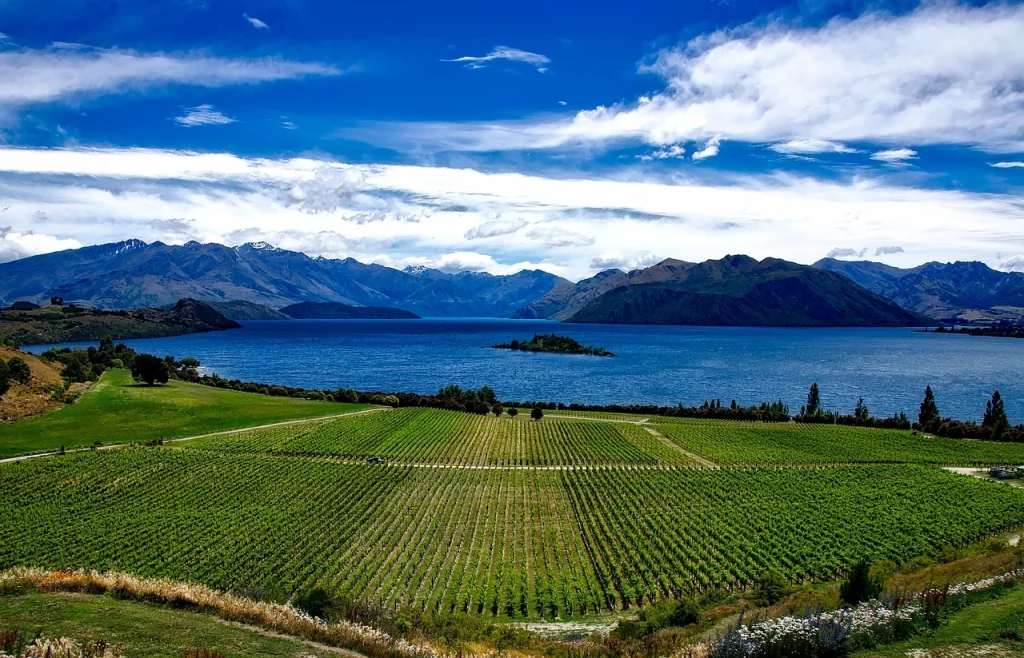
A single grape stand produces 25kg worth of grapes annually. In the Nigerian market a kilogram of grape costs N700. With this we can say that a farmer makes N17,500 per stand. Then imagine that the farmer is farming grape in an hectare. A hectare contains at least 400 stands, of which after conversion to Naira would be worth N7,000,000.
The most intriguing thing after you buy the first seeds, or plant the cutting gotten from an older vine, the grape can keep growing for up 50 years, and the fact that it grows in warm climate especially in dry season (less water consumption). therefore showing us that the initial investment capital is no match for the endless profits of this business.
One wont be wrong to be all hyper about starting grape farming immediately after reading such a breathtaking analysis on the profitability of grape farming in Nigeria. But before we jump proceed into how to start grape farming in Nigeria, lets find out the main species of grapes farmed in Nigeria.
What Species Of Grape Is Popularly Farmed in Nigeria?
There are over 1000 species of grapes in the world today, reasons because this plant has been evolving for up to 8000 years now. today, the popular grape species found worldwide are: the Cabernet Sauvignon, Merlot, Tempranillo, Airen etc.
Regardless of the the large number of grape farmed world wide, the mostly farmed grape species in Nigeria is the European (French) grape species.
With this, we proceed to how to start grape farming in Nigeria.
How To Start Grape Farming In Nigeria
Grape farming is one of the easiest farming we have ever written on, when compared to likes our articles on apple farming, sesame farming and even tomato farming.
Before we get into the procedure proper, please note the following (they are very important)
- Grapes don’t like too much water.
- Grapes grow better in well drained warm soils and dry seasons.
- Grapes will rarely survive cold temperature, it is a temperate plant.
- Do not fertilize the grape farm in the first year.
- Do not allow fruits to stay during the first year of fruiting, as the vines are still tender and might be damaged by the weight.
In grape farming there are majorly three (3) steps. they are:
1. Land Preparation
Loamy-clay soils which are level, deep and well drained are the best for grape farming. When sitting your grape farm do your research well. make sure that the land of your choice doesn’t get waterlogged, and is very open to good sunlight.
After sitting, the next step is to weed the land and apply organic manure to the land, manure of 50-60kg per hectare. When you are done here, proceed to the next step, Planting.
2. Planting
Grapes are planted in October and March (precisely September to October for rooted cuttings and February to March for rootstocks). The reason for this timing is because Grapes do best in dry season and doesn’t require much rainfall (at least 500mm per annum), although in very dry areas irrigations with good drainage systems can be applied.
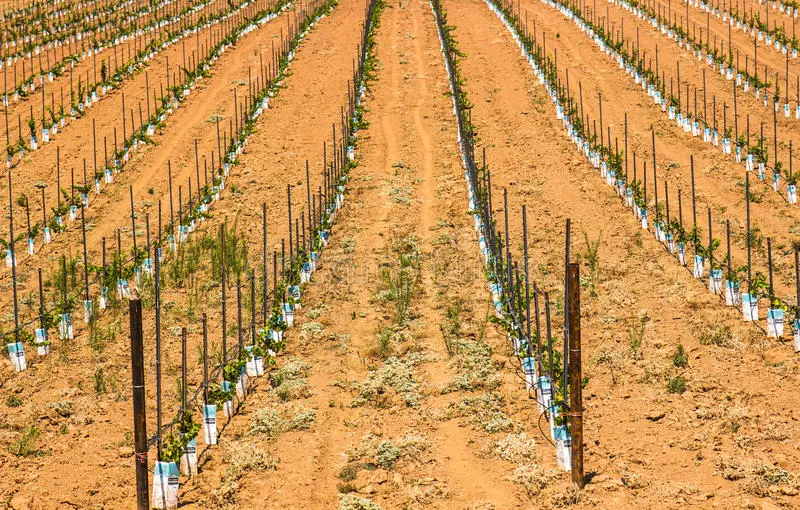
Here are the steps in planting grapes:
- Position a support (using bamboo sticks) or build a wall for support. In agriculture this practice is called stacking, similarly used in ugwu farming. This is to prevent rots, pests and to promote more yield as it is a creping plant.
- Now plant your seed, cutting or rootstock in a hole of 15cm deep, which is also 15cm away from the bamboo stick or wall. For those using rootstocks, first soak in water before puting it in the hole, gently cover the root area and level in with your feet.
- use the decomposing manure or compost to cover the hole. This helps to protect the young plant from cold temperature which can lead to death. Grapes can only survive in temperature between 15C and 400C.
- Make sure that you put into consideration the spacing. For vines, space them 2-3m apart, while for rows space them 1-1.5m apart.
- Spray a mixture of humic acid, sugar and coconut water on the bud to increase the quality of grapes when fruiting starts.
- Regularly prune the vines. also train the grape trellis twice a year.
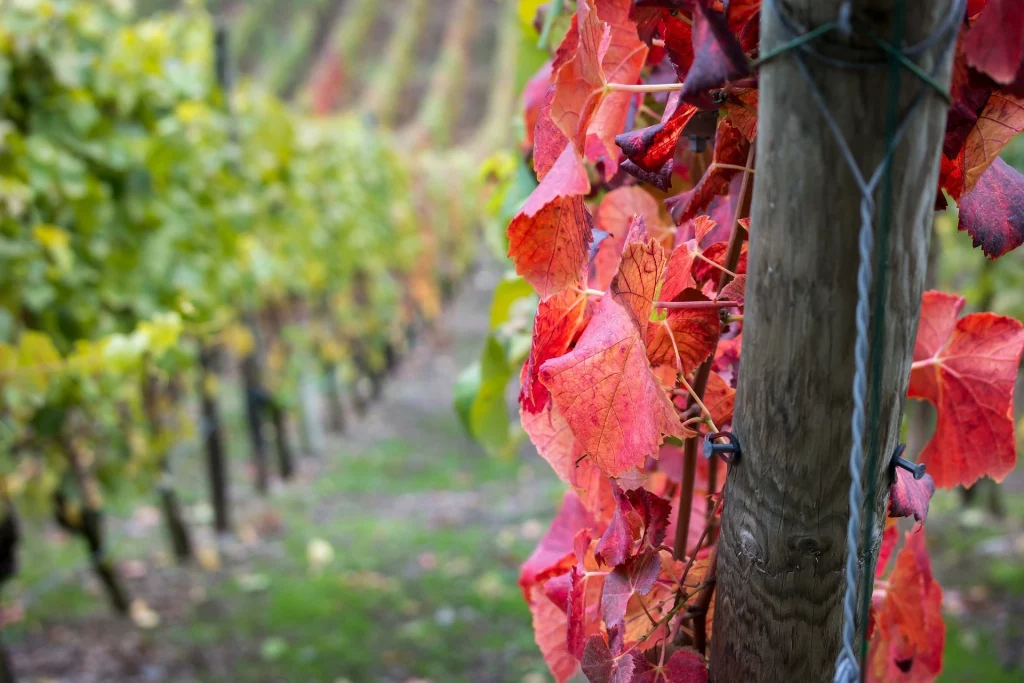
From steps above, grapes have proven to be very easy to plant but the main difficulty of grape farming in Nigeria is Pest and diseases.
Grape has many pests but the main pest that attacks it especially during the dry season is the Red Spider Mite. Although research shows that the easy remedy to this pest is high humidity because Red Spider Mites hate moisture, but applying moisture will lead to the reduction in the grape quality. Other pests of grapes are; the flea beetles, leaf hoppers, Mealy bugs. The best way for handling pests is by using pesticides.
Some common diseases of grapes are: Mildew and Antracynase infestation which affects the vine. Regardless they can be treated using cow urine, trichoderma and Bordeaux mixture. Next up is Harvesting.
By the second after planting the grape seed, germination will begin. during the season before the seed germinates visibly, make sure that the soil is damp but not wet.
3. Harvesting
Grapes take up to three years to start fruiting. Although it depends on the species of grape you purchased, most hybrids take shorter time to fruit.
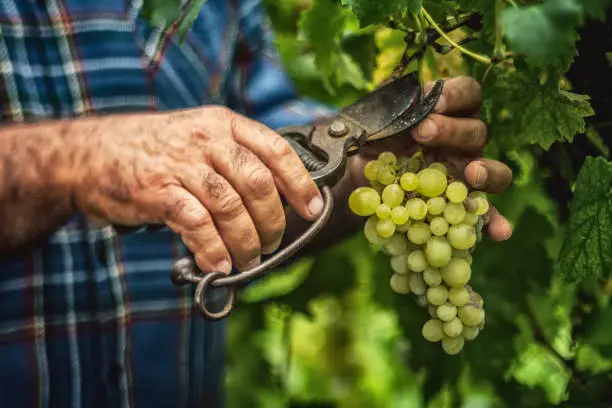
A hectare of land at least produces 50kg worth of grapes. Vines don’t die up like some plants after a farming season, the vines of grapes keep producing fruit to even 15 years depending how well it was managed.
Grapes don’t have a particular harvest date. Grape farmers identify ripe grapes either by pinching them or eating a little to taste if they are mature for harvest. Another indicator of harvest time, is the change in colour and the size of the grapes.
After checking the grape, and it is found to be ripe, the next step is either to gently handpick the clusters (but this method is not advisable, as it might damage the vine) or by using a kitchen scissors or shears to cut the cluster of the the vine.
The best time of the day to harvest grape would be on sunny day or in the afternoons when the moisture contents are very low, to prevent early spoilage. With this we proceed to know how to store these clusters of grapes.
4. Storage
Not every grape is harvested for immediate consumption, some are harvested for sales while some are harvested to be converted to wine or even Jam, and for this reason storage is a necessity. so, how are grapes stored?
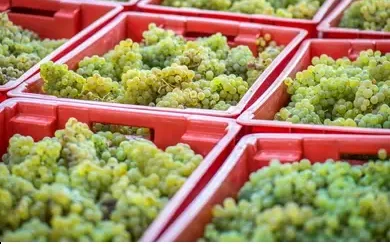
Grapes are stored in dry boxes. A good grape storage box can contain 4kg of grapes. But there is room for improvisation, some farmers use plastic containers or barrels to keep the grapes, tightly covered to prevent moisture from the air and even pests/ diseases.
Uses of Grapes
- Wine Production: throughout history the most popular product made from grapes is wine. the is produced after threshing the grapes and then the juice is collected. An example of grape wine is Cabernet Sauvignons and our very own MADE IN AFRICA wine Pure Heaven. There are countless wonderful wines, but for now this two will do.
- Alcohol Production: Alcohol is an end product of fermentation. The residue after the wine has been extracted can be left to ferment for some days or weeks depending, of which later this alcohol is the used in the production of alcoholic drinks or wines.
- Jam: To an average Nigerian, Jam is just a word learnt in elementary school but only a few have used it. Jam is another amazing product made from Grapes. Jam is made by cutting, blending and cooking grapes with sugar until it thickens. Jam is the best for your bread, its like a western blue band.
If we are to keep listing the uses of grapes it would be impossible to enumerate all the products of grapes. Even skin care products are made with the oil extracted from Grapes, talk more of the endless health benefits.
Conclusion
All this while we have been discussing on how to start grape farming in Nigeria. Grape farming was defined as the agricultural practice of cultivating, harvesting and marketing grape for profits.
A proper analysis on the profitability of grape farming in Nigeria was conducted, and from the figures, grape farming in Nigeria was proven to be successful and profitable, showing that a grape farmer who owns at least a plot of grape farm can make up to N1.1 million in a year. Also considering the fact that these vines will keep producing till up to 15 years, not need for extra input and extra expenses on water( because grapes just needs moderate water.
The steps in Grape farming in Nigeria were discussed like Land preparation, Planting, Harvesting and storage were properly discussed in details. To add more beauty to the article, the uses of grapes where also discussed.
Now all you need do is to practice this knowledge and in a short while you look back to this yearly income generator in excitement.
Did you love this post? If you did, click on our home menu for more interesting posts like this. Posts on Tomato farming, Best egg producing chickens, Catfish farming and many more. For early notifications of new posts subscribe to our websites. See you in the next post.

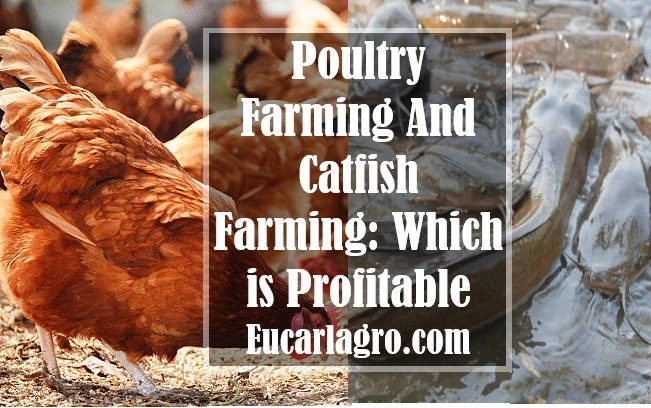
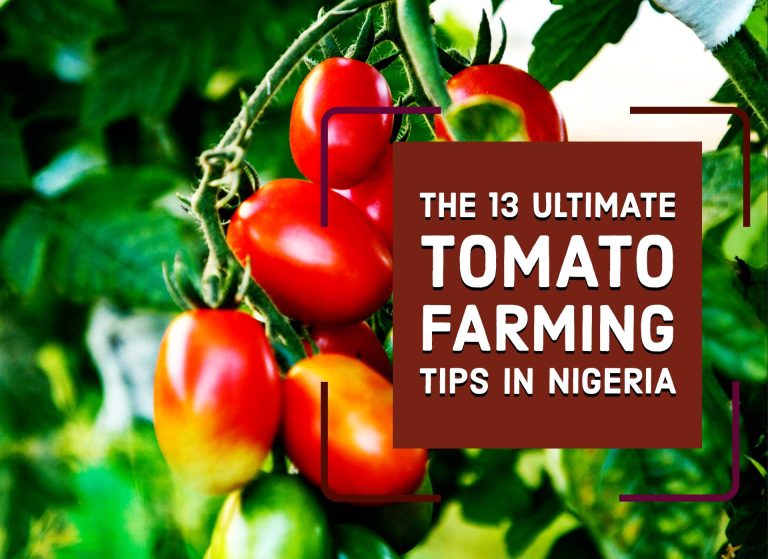
![How To Start A Farm With No Money ([year]) How To Start A Farm With No Money (2024)](https://eucarlagro.com/wp-content/uploads/2022/08/ezgif.com-gif-maker-2022-08-19T064730.741-768x463.webp)
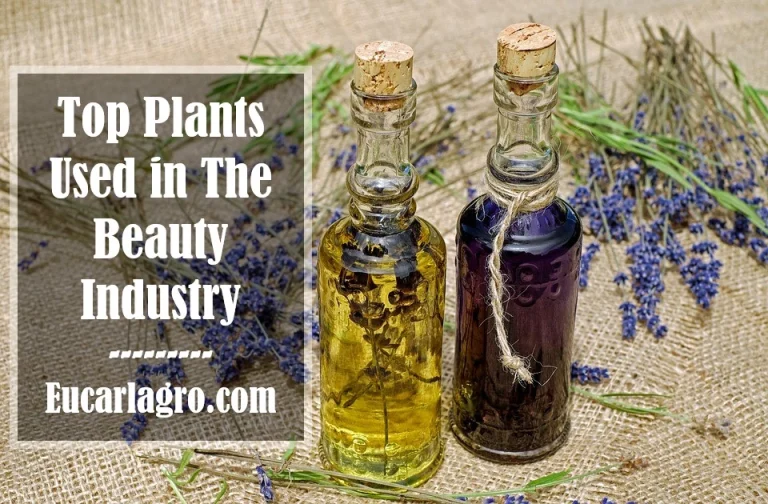
![How To Start a Bitter Leaf Farming Business ([year]) How To Start a Bitter Leaf Farming Business (2024)](https://eucarlagro.com/wp-content/uploads/2023/07/bitterleaf.jpg)
![How To Start Potato Farming in Nigeria ([year]) How To Start Potato Farming in Nigeria (2024)](https://eucarlagro.com/wp-content/uploads/2023/11/Start-Potato-Farming-in-Nigeria.webp)